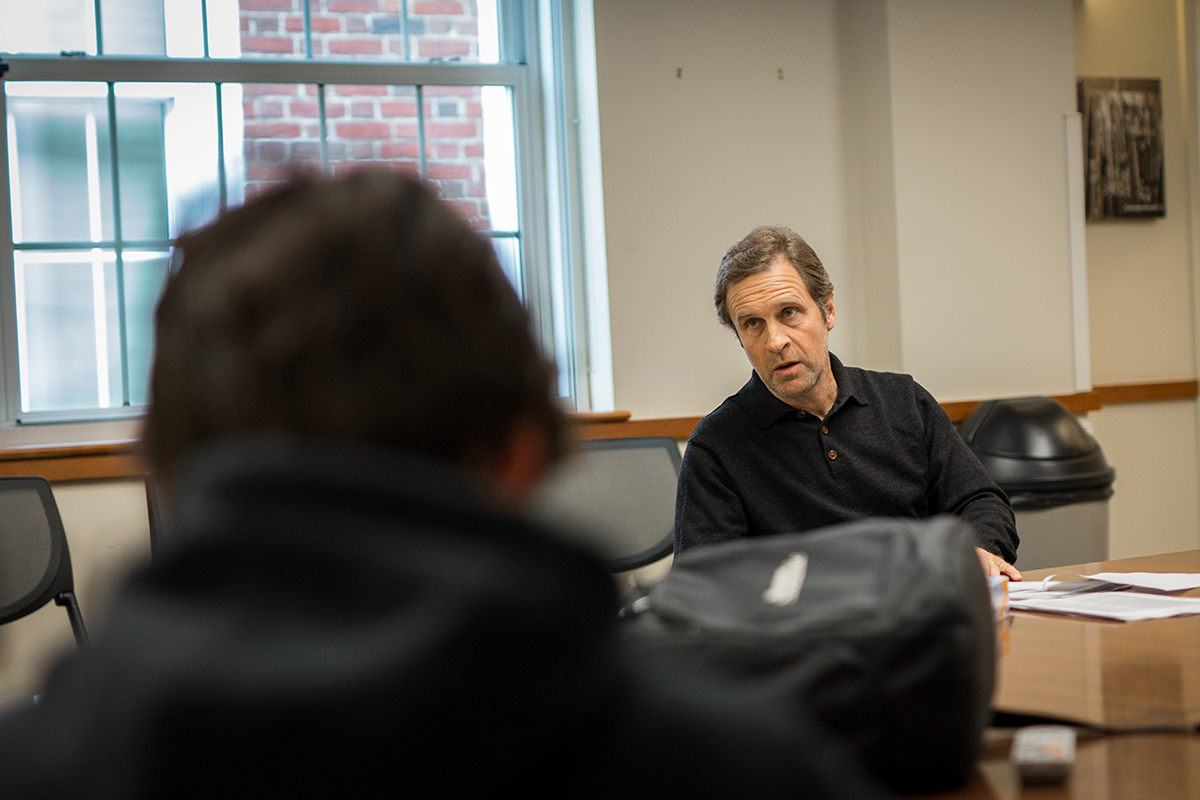Jonathan Nydick

The fact that Jonathan Nydick, Exeter’s new learning specialist and coordinator of academic support, started out in public relations kind of makes sense. After all, networking and communicating with Academy students, teachers and parents is a huge part of his job.
“I feel like my role is somewhere between an emergency room doctor and a relief pitcher,” he says, chuckling. “I help fill in the gaps.”
An alumnus of Northwestern University’s School of Speech (now School of Communications), where he studied rhetoric and rhetorical analysis, Nydick landed at Burson-Marstellar’s New York City offices after graduation. While his experience at the global public relations firm was exhilarating – “I got to travel and work on a lot of big corporate accounts” – a desire to work with people in a helping profession eventually led him down a different path.
“I started volunteering in various schools north of New York, including Scarsdale Public Schools, where I met a lot of 20- and 30-year special education veterans who let me work in their resource rooms.” From there, Nydick decided to pursue a master’s degree at Harvard’s Graduate School of Education, where he specialized in reading and language.
Now himself a veteran in the field, Nydick says he has “worked with every age range, from 5 to 50, and in all kinds of settings,” from the University of Texas, where he interfaced primarily with varsity football players, to, most recently, Brooklyn Friends School, where he supported upper school students. He and wife Dido joined the Exeter community in August of 2017.
Six months in, Nydick is simultaneously getting the lay of the land and planning for the future. A protean professional, he handles a spectrum of needs and requests from the Academy community, everything from direct student support (tutoring and teaching a study skills class) to arranging for learning accommodations (e.g. distraction-free test spaces) and neuropsychological testing and evaluation. Like most other Exeter instructors, he also does dorm duty, in his case, in Abbot.
As a new “student” at Exeter, Nydick is likewise spending lots of time observing, listening and digesting. In getting to know the community, he explains, he is beginning to suss out its academic support needs.
And they are? “Mainly to do with time management. Exeter students are intelligent and have a high capacity for work,” he says. “They also have endless options when it comes to co-curricular activities. With so many choices, it can sometimes be difficult to prioritize.” Nydick sees his role as helping students manage their time efficiently and refine how they approach improving their overall academic performance, including assignments, class discussions and interactions with teachers and peers.
Looking ahead, Nydick, whose office is situated on the third floor of the Elizabeth Phillips Academy Center, envisions being even more “proactive and preemptive” in his work. “I would love to see us integrate some of the language and practices of academic support into the opening weeks of school, perhaps as early as orientation,” he says. “It’s never too early, or too late, to learn how to learn.”
– Melanie Nelson


